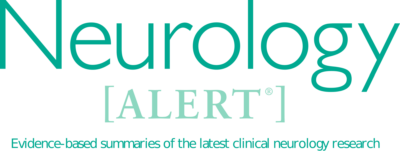
Neurology Alert – April 1, 2021
April 1, 2021
View Issues
-
Phospho-Tau217 Blood Biomarker May Help to Diagnose Early Alzheimer’s Disease
Serum phospho-tau217, a biomarker of tau protein that can be detected in the blood, is increased in preclinical Alzheimer’s disease and may have clinical utility for the early detection of brain pathology.
-
Cognitive Deficits in Patients Recovering from COVID-19
Hospitalized COVID-19 patients with cognitive complaints demonstrate reduced attention and executive dysfunction on formal cognitive testing consistent with the same frequency and pattern of cognitive changes associated with critical illness.
-
Polyradiculoneuropathy from Immune Checkpoint Inhibitors
Immune checkpoint inhibitors have become an important part of the armamentarium for the medical treatment of cancers such as melanoma and lung carcinomas. A number of immune-mediated neurological complications have been identified during the use of these agents, including polyradiculoneuropathy.
-
Brain Cancer and Brain Injury Drive Systemic Immunosuppression
Glioblastoma-associated immunosuppression is a significant factor associated with poor survival in this disease. Accumulating evidence suggests that mouse models of glioblastoma and other brain cancers induce systemic immunosuppression through dysregulation of a newly recognized brain-thymus axis and that targeting this pathway may promote more effective immune surveillance of these tumors.
-
Tenecteplase vs. Alteplase for Thrombolysis in Basilar Artery Occlusion
Basilar artery occlusion is a dangerous clinical syndrome of large artery occlusion that carries a high morbidity and mortality with severe disability in survivors. In multiple trials, alteplase has shown minimal benefit in achieving reperfusion in patients with large artery occlusion, including the basilar artery. Tenecteplase is a modified variant of alteplase that has greater specificity in binding to fibrin, a longer half-life, and can be administered in a single bolus.
-
Tranexamic Acid in Patients with Intracerebral Hemorrhage Does Not Improve Outcomes
Primary intracerebral hemorrhage is a major cause of severe neurological disability and carries a high rate of death. Tranexamic acid was tested in a study of 2,325 patients with intracerebral hemorrhage within eight hours of symptom onset, but did not significantly improve neurological outcome.
-
Atorvastatin and Low-Dose Dexamethasone for Treatment of Chronic Subdural Hematoma
Chronic subdural hematoma is a common cause of serious neurological morbidity and mortality in the elderly population. Atorvastatin has both an anti-inflammatory effect and the ability to mobilize endothelial progenitor cells, which assist in vascular repair. The investigators proposed that adding a low dose of dexamethasone to atorvastatin treatment might enhance the anti-inflammatory benefits without causing the side effects associated with high doses of corticosteroids.
